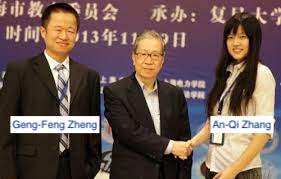On June 9, 2020, the former Chair of Harvard University’s Chemistry and Chemical Biology Department, Dr. Charles Lieber, was indicted on charges of making false statements to federal authorities regarding his participation in China’s Thousand Talents Program.
China’s Thousand Talents Program is one of the most prominent Chinese talent recruitment plans designed to attract, recruit and cultivate high-level scientific talent in furtherance of China’s scientific development, economic prosperity and national security. These talent recruitment efforts seek to lure Chinese overseas talent and foreign experts to bring their knowledge and experience to China, and they often reward individuals for stealing proprietary information.
Beginning in 2011, Lieber became a “Strategic Scientist” at China’s Wuhan University of Technology and later became a contractual participant in the Thousand Talents Plan from at least 2012 through 2015.
Accusations of lying to federal investigators aside, Lieber may have significantly contributed to China’s biological warfare program.
Geng-feng Zheng is a professor of chemistry at Fudan University in Shanghai, China. He received a Ph.D. degree in Chemistry in 2007 from Harvard University under the guidance of Dr. Charles Lieber and completed postdoctoral training at Northwestern University.

Zheng is an expert in nanotechnologies and, together with Lieber in 2004, began to investigate the use of nanowire field effect transistors to detect single viruses.
The collaboration between Zheng and Lieber continued even after 2010, when Zheng became a professor at Fudan University, together producing no less than eleven scientific publications on nanowire technologies.
But the collaboration did not end there. In accordance with China’s practice of “scientific chain migration,” Zheng’s student at Fudan University, An-Qi Zhang, continued the work with Lieber on nano-bioelectronics.

In 2016, An-Qi Zhang, Geng-feng Zheng and Charles Lieber published a book “Nanowires – Building Blocks for Nanoscience and Nanotechnology.”
China’s People’s Liberation Army’s (PLA) biosensor program is based on nanotechnologies, in particular, nanowire field effect transistor biosensors.
Since 2016, there has been a massive expansion of fused military-civilian research in China after it was mandated by the Chinese Communist Party’s Thirteenth Five-Year Plan.
A key figure in China’s military-civilian biosensor program is Mao-sheng Yao of Peking University.

Mao-sheng Yao is an expert in the surveillance and measurement of microorganisms in the environment, who, incidentally, was entirely educated in U.S. universities, receiving a Master’s degree from the University of Alabama, a doctoral degree from Rutgers University and postdoctoral training at Yale University.
In 2018, during a kick-off seminar entitled “Bioaerosol Detection Technology Strategic Collaboration,” Mao-sheng Yao announced a fused military-civilian research program with the PLA’s National Bio-protection Engineering Center, Institute of Medical Support Technology, Institute of Systems Engineering, Academy of Military Sciences in Tianjin, led by Jian-cheng Qi.

Mao-sheng Yao and Geng-feng Zheng, Charles Lieber’s former student, have conducted collaborative research on nanowire bio-detection, co-authoring a publication in 2018.
Also in 2018, Jian-cheng Qi’s research group at the PLA’s National Bio-protection Engineering Center in Tianjin published an article entitled “Applications of silicon nanowire FET biosensors to bacterial and viral detection.”
In December 2019, Mao-sheng Yao was granted a Chinese patent entitled “Method for rapidly detecting pathogenic microorganisms in air and respiratory tract on site.”
It is important to note that Jian-cheng Qi’s research group at the PLA’s National Bio-protection Engineering Center has operated under Major General Wei Chen, presumed chief of China’s biowarfare program, who took command in Wuhan after the outbreak of COVID-19, a response highlighted in Chinese news reports and no doubt including stolen U.S. technologies. Jian-cheng Qi was part of her team in Wuhan.

The massive infiltration of U.S. virus research programs by China’s People’s Liberation Army and the hemorrhaging of American skills and knowledge into China’s biowarfare program remain unaddressed.
This column was originally published at The Gateway Pundit.
The views expressed in CCNS member articles are not necessarily the views or positions of the entire CCNS. They are the views of the authors, who are members of the CCNS.
